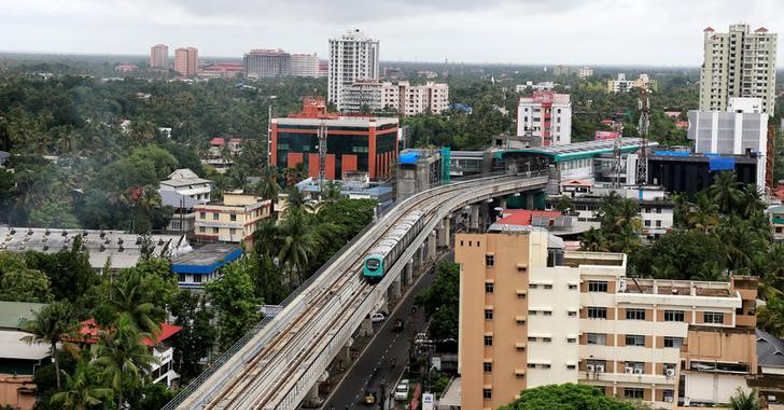Kochi: Kochi Metro has turned a model for the central government to formulate guidelines for upcoming metros in the country. The new policy involves three models with private participation at various levels but the Kochi model would help the future projects in Kerala to meet the criteria.
Apart from the Kochi model in which the central and state governments share the costs equally, the new policy approves a model with 10 percent grant from the Center and a public-private participation model with viability gap funding from the center.
Kochi Metro met the criterion for private participation by joining with Axis Bank to issue the 'Kochi One' ticket-cum-debit card. Metro projects in Thiruvananthapuram and Kozhikode could opt for the same route.
The Center looks to Kochi Metro for inspiration in other aspects as well. Requirements such as the introduction of feeder service within five kilometers of the metro route and the new system of ticket collection trace their origin to Kochi.
Kochi Metro has already implemented almost all requirements in the new policy. The government has made it mandatory for new metro projects to have fiscal returns of 8 percent and economic returns of 14 percent to get approval. Fiscal returns concerns the revenue as per the company’s balance sheet, while economic returns signifies the benefit a Metro line bestows on a city. The Kochi Metro has already exceeded both parameters.
The formulation of central policy would fast-track the second phase of Kochi Metro between Kaloor international stadium and Infopark in Kakkanad. The central government did not want to take up the proposal before it rolled out the new guidelines.
The project report for the second phase is pending before the union urban development ministry. Kochi Metro may be the first project to be taken up in accordance with the new guidelines, followed by Vijayawada.
Project reports for Thiruvananthapuram and Kozhikode, however, are yet to be submitted for central government approval. Both projects will have to be overhauled to ensure 14 percent economic returns.
The reports will also have to include feeder services and commercial services. Kozhikode and Thiruvananthapuram are likely to opt for the Kochi model in which the central and state governments share the cost equally.
Kochi Metro second phase
Between the Jawaharlal Nehru stadium at Kaloor and the Infopark at Kakkanad.
Covers a stretch of 11 kilometers
Connects nine stations
Estimated to cost Rs 2,577 crore
Thiruvananthapuram light metro
• Between Technocity and Karamana
• Covers a stretch of 21.82 kilometers
• Connects 19 stations
• Estimated to cost Rs 4,219 crore
Kozhikode light metro
• Between medical college and Meenchantha
• Covers a stretch of 13.33 kilometers
• Connects 14 stations
• Estimated to cost Rs 2,509 crore
Read more: Latest on Kochi Metro | New box office hit: Kochi Metro collects Rs 4.62 crore in one month

























 Metro train leaves Changampuzha Park station during its trail run in Kochi. Reuters/Sivaram V/Files
Metro train leaves Changampuzha Park station during its trail run in Kochi. Reuters/Sivaram V/Files